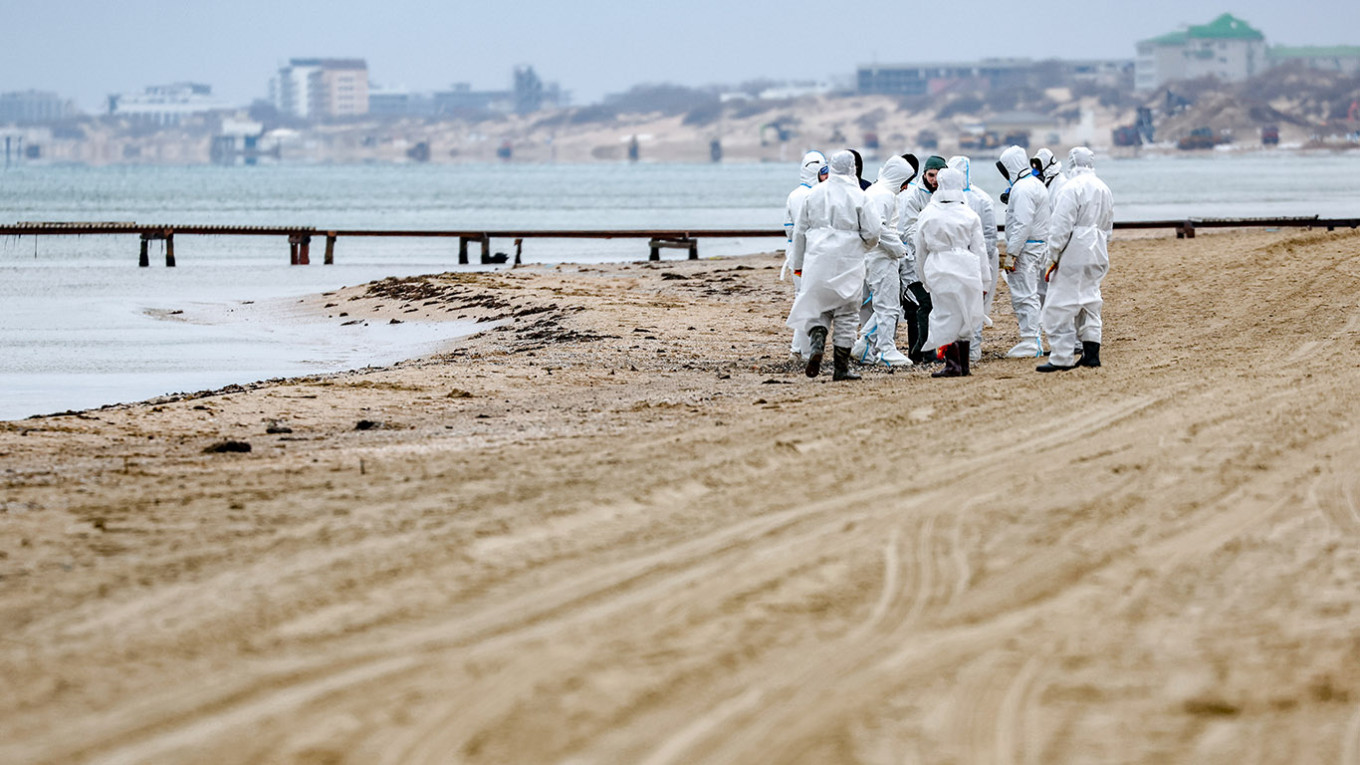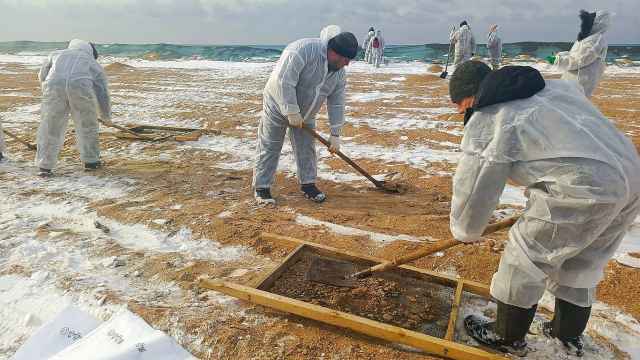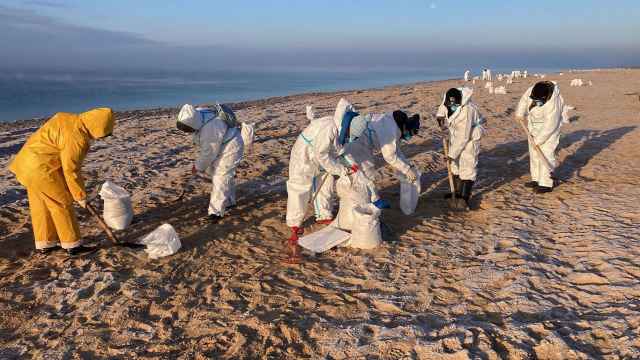Authorities in Russia declared a federal-level emergency on Thursday in response to the oil spill along the Black Sea coast, which local and regional emergency services, aided by thousands of volunteers, have struggled to clean up over the past week.
“Yesterday, together with all my colleagues, we discussed the situation, and by the decision of the leader [President Vladimir Putin], it will be assigned the status of a federal emergency,” Sergei Aksyonov, the Moscow-backed head of annexed Crimea, was quoted as saying by Interfax.
Later on Thursday, Russia’s Emergency Situations Minister, Alexander Kurenkov, convened an emergency commission to formalize the decision, allowing federal funds to be allocated to address the aftermath of the oil spill.
The decision comes a day after the southern Krasnodar region declared a regional state of emergency amid muddled cleanup efforts by local authorities. Residents have criticized the operation, citing insufficient personnel and equipment for the unfolding environmental disaster.
The spill, which occurred on Dec. 15, was caused when two Russian-flagged oil tankers were damaged during a storm, releasing thousands of tons of heavy fuel oil, known as mazut, into the Black Sea. Emergency officials reported on Monday that approximately 55 kilometers (34 miles) of coastline have been polluted.
Viktor Danilov-Danilyan, a scientist who heads the Water Problems Institute of the Russian Academy of Sciences and served as Russia’s Environment Minister from 1991 to 1996, said Wednesday that at least 200,000 tons of soil had been contaminated with fuel oil along the Black Sea coast following the tanker accident near the Kerch Strait.
“It will grow. There is no doubt about it because the fuel oil remains in the sea and in fairly large quantities,” Danilov-Danilyan said during a press conference. “It will continue to wash up onto the cleaned shore. It will need to be cleaned a second, or third time. We need to prepare for this.”
He also criticized the lack of equipment being deployed and the reliance on untrained, unequipped volunteers.
“There are no bulldozers, no trucks. Practically no heavy machinery,” he said. “Volunteers have only shovels and useless plastic bags that rip apart. While the bags wait to finally be collected, storms arrive, and they end up back in the sea. It’s unthinkable!”
Danilov-Danilyan warned that the impacted communities along the Black Sea coast may be unable to welcome tourists in the spring and summer due to the high level of pollution in the water and on the beaches.
“We don’t have many places with warm beaches in the country. Hardly any of the main ones are going away, and it’s very difficult to say now for how long: maybe for one season,” he said.
At his annual press conference last week, Putin blamed the oil tankers’ captains for the disaster, claiming they ventured out to sea without authorization.
AFP contributed reporting.
A Message from The Moscow Times:
Dear readers,
We are facing unprecedented challenges. Russia's Prosecutor General's Office has designated The Moscow Times as an "undesirable" organization, criminalizing our work and putting our staff at risk of prosecution. This follows our earlier unjust labeling as a "foreign agent."
These actions are direct attempts to silence independent journalism in Russia. The authorities claim our work "discredits the decisions of the Russian leadership." We see things differently: we strive to provide accurate, unbiased reporting on Russia.
We, the journalists of The Moscow Times, refuse to be silenced. But to continue our work, we need your help.
Your support, no matter how small, makes a world of difference. If you can, please support us monthly starting from just $2. It's quick to set up, and every contribution makes a significant impact.
By supporting The Moscow Times, you're defending open, independent journalism in the face of repression. Thank you for standing with us.
Remind me later.






